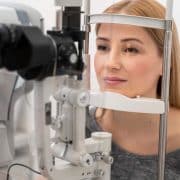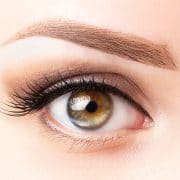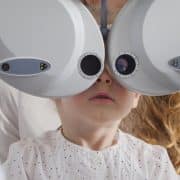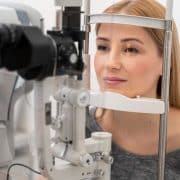The Pros and Cons of Transitions® Lenses
If you’re tired of continually switching from your indoor glasses to your outdoor glasses, then getting some Transitions® lenses in Brunswick, GA, might be just what you’re looking for.
What Are Transitions® Lenses?
Transitions® lenses are eyeglass lenses that change from clear to tinted without having to switch the frames. So, basically, they are eyeglasses and sunglasses all in one. Transitions® lenses require a prescription; therefore, you will need to see your optometrist in Brunswick, GA, to get them.
How Do Transitions® Lenses Work?
Transitions® lenses adapt to your environment. How much they tint when you go from a light environment to a darker environment depends on how much light is available.
Transitions®, also called photochromic lenses), have small molecules of silver halide and chloride embedded into the lens. Those tint molecules remain invisible until they are exposed to UV rays or sunlight. When the tint molecules encounter light, they react, move, and change shape to absorb it.
The Pros and Cons of Transitions® Lenses
Just like anything else, there are pros and cons. Here are some of the pros and cons associated with Transitions® lenses.
Pros:
- They provide you with improved eye health because they automatically adapt to your environment to protect your eyes.
- You won’t have to carry two sets of prescription glasses (regular eyeglasses and sunglasses).
- Transitions® lenses help block blue light. So, if you spend lots of time in front of a computer or any other electronic device with a screen, these lenses will help protect your eyes.
- They will save you money because you won’t have to buy two sets of glasses.
- You won’t have to squint to protect your eyes from the sun.
Cons:
- Regular Transitions® lenses might not be your best bet if you drive a lot. They sell Transitions® XTRActive and Drivewear Lenses that are made specifically for protecting your eyes from the effects of driving (headlights, glare, sunlight).
- They can’t be polarized to protect your eyes from a blinding glare.
- In extreme cold, they can take longer to transition.
Are You Looking for a Reputable Optometrist in Brunswick, GA?
If you want to get some Transitions® lenses, you will need to see your optometrist first. Please Contact Vision Source Family Eye Care today. We will examine your eyes, discuss Transitions® lenses with you, and then give you the prescription you will need to get them.





